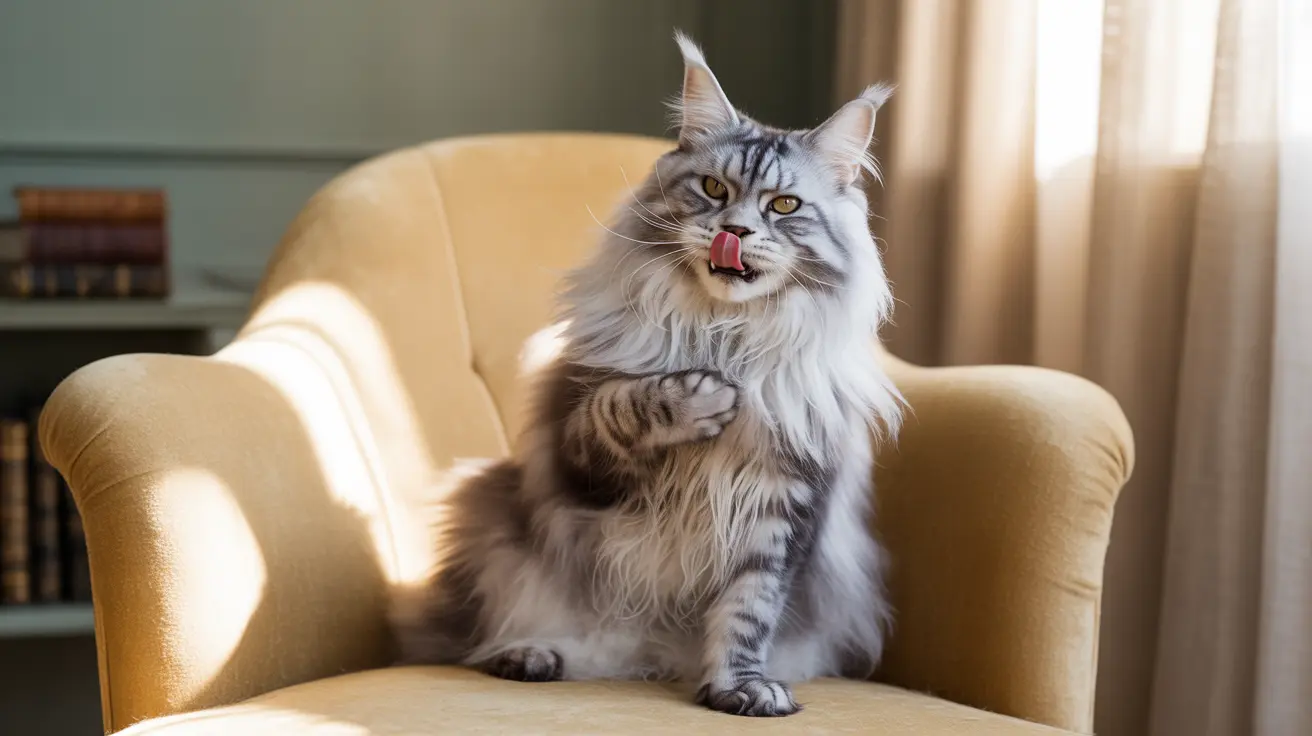The Natural Purpose of Cat Grooming
Cats are naturally programmed to keep themselves clean, spending anywhere from 2-5 hours daily on personal grooming. This isn't just about vanity – it's a vital survival mechanism that evolved over thousands of years.
Physical Health Benefits
Your cat's rough tongue is perfectly designed for grooming, featuring tiny hooks called papillae that act like a natural brush. When your cat licks herself, she's:
- Removing dirt, debris, and loose fur
- Distributing natural oils throughout her coat
- Maintaining proper body temperature
- Stimulating blood circulation
- Checking for injuries or abnormalities
Emotional and Social Aspects
Grooming serves important psychological functions beyond physical cleaning. When your cat cleans herself frequently, she may be:
- Self-soothing during stressful situations
- Marking her territory with her scent
- Maintaining social bonds (if living with other cats)
- Expressing contentment and security
When Excessive Grooming Becomes a Concern
While regular grooming is healthy and normal, sometimes cats can clean themselves too much. This overgrooming might indicate underlying issues that need attention.
Common Causes of Overgrooming
Several factors can trigger excessive grooming behaviors:
- Stress and anxiety
- Allergies (food or environmental)
- Skin conditions or parasites
- Pain or discomfort
- Boredom or lack of stimulation
Solutions and Prevention Strategies
If you notice your cat cleaning herself excessively, consider these approaches:
- Schedule a veterinary check-up to rule out medical issues
- Create a calm, enriching environment
- Maintain a consistent daily routine
- Provide interactive play sessions
- Consider stress-reduction tools like pheromone diffusers
Frequently Asked Questions
Why does my cat clean herself so much every day?
Cats typically spend 30-50% of their waking hours grooming to maintain cleanliness, regulate body temperature, and distribute natural oils throughout their coat. This behavior is completely normal and essential for their well-being.
What are the common medical causes of excessive grooming in cats?
Medical causes can include allergies, skin infections, parasites (like fleas), pain or discomfort, and hormonal imbalances. Any sudden increase in grooming should be evaluated by a veterinarian.
How can stress lead to my cat grooming herself too much?
Stress triggers the release of anxiety-relieving endorphins during grooming, making it a natural coping mechanism. Changes in environment, new pets, or disrupted routines can lead to stress-induced overgrooming.
When should I be concerned that my cat's grooming is excessive or harmful?
Be concerned if you notice bald patches, skin irritation, raw areas, or if grooming interferes with normal activities like eating or sleeping. These signs warrant immediate veterinary attention.
What can I do to help reduce my cat's overgrooming behavior?
Address potential stressors, provide environmental enrichment, maintain regular playtime, and consult with your veterinarian about possible underlying causes. Never punish overgrooming, as this increases stress and worsens the behavior.
Conclusion
Understanding why your cat cleans herself so much is key to ensuring her grooming habits remain healthy. While most grooming is normal and beneficial, being aware of excessive cleaning can help you identify and address potential problems early, keeping your feline friend happy and healthy.






